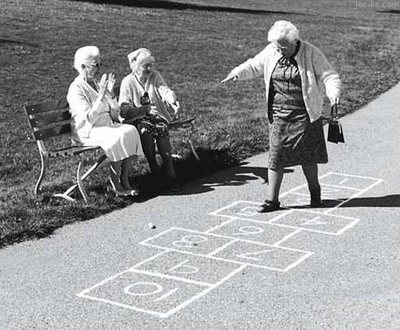This week I test my cellular age
I’ve reached that curious age where you no longer look your age. Which is to say you look as old as whatever you got up to the night before.
When I sleep badly, I look like there’s a huge suck-hole at my feet dragging my fascia deep below the earth’s crust. If I have more than one glass of red at dinner, the next day I resemble a before shot in one of those psoriasis medication ads. A rut of eating too much sugar and I’m puffy and slow and I look….wan. I’ve never in my life had occasion to use the word “wan”. But right now it lends onomatopoeic appropriateness.
Conversely, when I live 100 per cent virtuously, I look – comparative to everyone else my age battling a one-glass hangover – positively pubescent.
Being such an age (and since we’re friends, I’m cruising towards 37), I’ve started noticing a lot of people obsessed with anti-aging. I’m sure it’s not just the creaky circles I mix in. It started with an antioxidant fixation a few years ago. Now everyone’s popping a cocktail of new supplements, such as Coq10, DHEA, EFAs and melatonin (a sleep aid with alleged age-reversing properties), and sharing their hormone specialist’s contact details. I know I use this literary device a lot in this column, but it must be said: longevity is the new skinny.
For folk in these circles, biological age (the number of years endured on the planet) is becoming redundant. Our cellular age is where it’s all that. This is essentially the health age of our cells, which can then determine our longevity. Extensive research has shown that genes dictate less than 25 per cent of how long the average person lives. The rest is up to us. Which you can take as liberating. Or daunting.
Of course, there are tests you can do to calculate your cellular age. And, of course, this week I tried one.
It entailed being hooked up to a “bioimpedance analysis” (BIA) device which passes a low voltage electrical current through your body. The test was actually developed for NASA and was used to test astronauts health in space (where there’s no gravity). The amount of fat, toxins and other sludge as a ratio to the amount of muscle and water you have in your cells determines how fast the current passes through, which determines your cellular age. In less than 90 seconds I found out, mercifully, I’m about 18 per cent younger than I sometimes feel.
For those interested, I did the test at the Sydney Health Clinic in Surry Hills with Chinese doctor John Haralambides. They test your mitochondria, fluid retention levels (both in your cells and around your cells), fat and muscle weight (which is balanced out against your frame size), all with the one device.
As it happened, this week I had dinner with arguably the world’s most authoritative expert on longevity. Dan Buettner spent four years studying communities around the world where the inhabitants live beyond 100 at alarming rates and coalesced the common lifestyle elements across the communities into the New York Times bestseller Blue Zones. As a slightly showy aside, Dan and I became e-friends last year after he contacted me on my blog, pointing out we’d both broken Guinness world records, ridden 3000km across parts of Australia and generally lived uncommitted lives, he as an National Geographic explorer, me in a suspended state of uncertainty. Dan’s extensive work has also resulted in a cellular age test which you can do free online. Interestingly, the result was exactly the same as the BIA one, to the month.
So. Does an understanding of cellular age, and trying to reduce it, make life better? Yes. As a wellness approach it’s sound and doable. As a goal, it’s sustainable and responsible. I know you’re all dying (literally) to know what reduces cellular age. Dan demonstrated most of them over dinner: he had red wine (Blue Zone folk drink it consistently, not too much), ate less than me (eating to 80 per cent full is best; Blue Zone communities all had rituals for “finishing” eating), told me he’s only ever done jobs he’s passionate about (knowing your purpose is key) and walked back to his hotel after dinner (moving “mindlessly” and incidentally is best).
Add to this eating a mostly plant-based diet, having a spiritual faith, choosing friends who live according to values that matter to you and withdrawing regularly and consciously to reflect and rest, which in our culture, rather ironically, we perceive as time-wasting. It’s not counter-intuitive stuff. And, unlike diets, the results are tangible.
As an experiment, I did a second BIA test a week later, having lived virtuously Blue Zone-like for seven days. I’d reduced my cellular age by another year.
Have you done a test like this? Intrigued by this longevity stuff? You might want to read this post I wrote during the week…It would appear – if we live “well” – we all have a good chance of living to 120 or 130…does this change your outlook on life?


